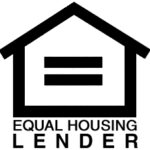What is a Reverse Mortgage?
The most common form of reverse mortgage is a federally insured loan by the Federal Housing Administration (FHA), commonly known as a Home Equity Conversion Mortgage (HECM). This option enables individuals to tap into their home equity and convert it into available cash. Borrowers opt for a reverse mortgage primarily because it enables them to reside in their homes, provided they adhere to the loan stipulations. Moreover, it offers supplementary funds that can significantly enhance their retirement income without necessitating monthly out-of-pocket payments.
Eligibility for a reverse mortgage requires the individual to be at least 62 years old and own a home. The security of retaining one’s home is contingent on the continued payment of property taxes and homeowner’s insurance, along with the maintenance of the property in good condition, and adherence to other specified loan terms.

1. No More Monthly Mortgage Payment
With no more concern of a monthly mortgage obligation, you can allocate your funds to address other crucial expenses.
2. Pull Cash out of your Home Equity
Your funds are not taxed (Consult your financial advisor) and can be utilized for many purposes, such as covering healthcare expenses, funding home improvements, settling debts, and more.
3. Continue Living in Your Home
A reverse mortgage can help you stay in your home for longer.
What Reverse Mortgage Type Is Best for Me?
Term or Tenure
Receive fixed monthly payments to supplement your income.
- Choose the duration for receiving payments using a term reverse mortgage.
- Use a tenure reverse mortgage to receive payments as long as you live in the home and adhere to the terms of the loan.
Growing Line of Credit
Establish a dynamic line of credit accessible to you whenever you need it.
- Rely on the line of credit as a safety net for unexpected expenses.
- Unused principal will grow over time, providing you with increased access to funds the longer it remains untapped.
Jumbo Loan
A jumbo reverse mortgage is a proprietary loan enabling withdrawal of up to $4 million in equity for a higher-valued property. This fixed-rate loan allows you to convert more equity into cash.
- No more monthly mortgage obligation.
- Avoid mortgage insurance payments.
- Receive the full amount at the closing.
Lump-Sum Payout
Opt for a single lump-sum payout of the proceeds.
- Withdraw a portion of your available funds within the first year.
- Access the maximum cash amount to address significant expenses.
Reverse for Purchase
Utilize a reverse mortgage for purchasing a new home.
- Eliminate monthly mortgage payments.
- Downsize to a residence that aligns with your long-term needs.

Questions & Answers
A reverse mortgage provides borrowers with the opportunity to tap into their home equity without the obligation of monthly mortgage payments. Through a reverse mortgage, you can obtain cash to enhance your income without having a monthly payment. Unlike a traditional forward mortgage, where your balance diminishes with each out-of-pocket payment, the balance of a reverse mortgage grows monthly since no monthly payments are being made.
The charges and interest rates associated with your reverse mortgage are linked to either fixed or variable rates, determined by an index and a margin. Your specific fees and rates can be accurately calculated based on the loan options you select.
The repayment of a reverse mortgage occurs when the final borrower, or even the last eligible non-borrowing spouse, vacates the residence or passes away. Usually, the home is sold, and the sale proceeds are utilized to settle the loan, with any remaining equity going to the heirs. In the event that heirs wish to retain the home, alternative repayment methods are available, such as refinancing into a different loan. Additionally, it’s possible to refinance from a reverse mortgage to a traditional forward mortgage at any point.
The funds from your reverse mortgage loan can be utilized for many purposes. Some common expenses include:
- Paying off bills
- Covering medical expenses
- Paying off an existing mortgage (required if there is a mortgage on the home)
- Going on vacations and visiting your children and grandchildren
- Funding in-home care
- Financing renovations and home repairs
No. With a reverse mortgage, homeowners can maintain title and ownership of their home as long as they reside there and the loan stays in good standing. Similar to other loans, compliance involves staying current with property taxes, insurance, and maintenance responsibilities.
As long as you meet the requirements of the loan, such as maintaining the payment of property taxes, homeowners insurance, and attending to essential maintenance and repairs, there is no need for concern. Failure to fulfill these obligations, however, may lead to the loan becoming due, and the possibility of the house being sold to settle the outstanding loan. Ensuring compliance with these responsibilities will keep your loan in good standing.
When the value of your home rises, so does your equity. With a reverse mortgage, this translates to a greater amount of funds available to you or your heirs if the home is sold to settle the loan upon your passing or departure. In the case of a substantial increase in value, you also have the option to refinance and extract additional equity from the home.
No. Social Security, Medicare, or pension benefits will remain unaffected. The funds derived from a reverse mortgage are classified as loan proceeds, not income. In fact, opting for a reverse mortgage might potentially enhance your Social Security benefits. By delaying the initiation of Social Security access, a reverse mortgage can extend the period during which you qualify for increased monthly benefits. It’s important to note that certain need-based benefits like Medicaid or SSI could be influenced, as the proceeds from a reverse mortgage positively impact your monthly cash flow.
Prior to acquiring a reverse mortgage, it is mandatory to undergo reverse mortgage counseling, which, in certain instances, can be conducted over the phone. A list of HUD-approved counseling agencies in your vicinity is available, and we can furnish you with a roster of approved providers.
If you reconsider your decision within three days of finalizing the loan, you have the option to cancel it. This designated period, known as the rescission period, allows borrowers to cancel the loan without incurring any penalties. Should you choose to cancel the loan after this period, you can proceed by repaying the received proceeds along with the accumulated interest.
The following things determine the amount of money you can qualify for:
- Your current mortgage balance (You must use the proceeds to pay off your existing mortgage)
- Your age
- The interest rate of your loan
- Your home value (based on an appraisal that will be part of the loan process)
Reverse mortgage funds can be distributed in a complete or partial lump sum, as a line of credit, through monthly payments, or in a combination of these options.
The loan duration can extend throughout your lifetime, provided you fulfill your responsibility of paying taxes, maintaining insurance, and keeping the home in good condition.
Typically, mobile homes are not eligible; nevertheless, certain HUD-approved manufactured homes adhering to FHA guidelines may qualify. We can assist you in assessing the eligibility of your mobile home.
In the event of your passing with an outstanding reverse mortgage loan, any unused funds will become part of your estate, maintaining their equity in the home. Following the borrower’s death, heirs have a six-month period to either settle the loan or consent to the sale of the home. The sale proceeds are then utilized to repay the loan, and any remaining funds become the property of the heirs.
The duration of the loan is contingent on your chosen method of accessing the loan proceeds. Options include receiving a lump sum, monthly installments over a specified term or lifelong occupancy, or utilizing a line of credit. One of our specialists can work with you to determine what option is best for your situation.
No. This is a prevalent misunderstanding. Indeed, when appropriately employed as a component of a comprehensive retirement income strategy, reverse mortgages can serve as a prudent financial planning tool. In recent years, retirement researchers and financial advisors have increasingly recognized and endorsed the utilization of reverse mortgages in the planning of retirement income.

John Fricke, Principal Lending Manager/Loan Officer
NMLS 213589 l Canopy Mortgage LLC l NMLS 1359687
Canopy Mortgage is not an agency of the federal government, and is not acting at the direction of HUD/FHA. Additional program restrictions may apply. Programs, rates, terms and restrictions subject to change without notice. Underwriting terms and conditions apply.
At Canopy Mortgage, we take seriously the confidence that our customers entrust to us. Protecting our customers’ privacy is a key priority. As a result, we have adopted the following privacy principles: We recognize and respect the privacy expectations of our customers as well as the need to collect and use customer information in an appropriate and responsible manner. We collect, retain and use information about individual customers (as allowed by law) only when we believe it to be useful to our business operations or to provide products, services and other opportunities to our customers. We seek to ensure that a customer’s financial information is accurate, current and complete. We have procedures in place to respond to requests to correct inaccurate information in a timely manner. Our employees have access to personally identifiable customer information only if they have a business reason for knowing such information. The importance of confidentiality and customer privacy is emphasized to our employees and appropriate disciplinary measures are taken to enforce employee privacy responsibilities. We maintain security standards and procedures regarding unauthorized access to customer information. We do not share personally identifiable customer information with unaffiliated third parties except as necessary to operate our business, comply with applicable laws and regulations or make available products, services and other opportunities to our customers. If we share personally identifiable customer information with an unaffiliated third party as part of our business operations, we require the third party to maintain the confidentiality of the customer information. We appreciate your business and look forward to continuing to provide you with the finest financial products and services available. If you have questions about these privacy principles or your account, please call 877-905-0005. Information for CA Residents.

